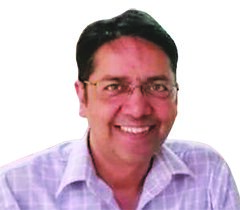Miscellaneous
Spirit of national reconciliation will be hallmark of new govt: Dahal
CPN (Maoist Centre) Chairman Pushpa Kamal Dahal says major differences with the ruling CPN-UML on key issues prompted his party to quit the government, a move that set the stage for the fall of KP Sharma Oli government.
Tika R Pradhan & Akhilesh Upadhyay
CPN (Maoist Centre) Chairman Pushpa Kamal Dahal says major differences with the ruling CPN-UML on key issues prompted his party to quit the government, a move that set the stage for the fall of KP Sharma Oli government.
In an exclusive interview with the Post on Thursday, the prime minister-in-waiting spoke at length about a number of issues where his party and UML now had strong divergence of opinion: the peace process that started in 2006, the long-drawn-out Madhes crisis and implementation of the constitution.
“Prime Minister Oli’s refusal to recognise the nine-point deal and the three-point ‘gentleman’s agreement’ forced the Maoist Centre to quit the coalition,” he said.
The nine-point deal reached between Dahal and Oli in May had it that the government would work to conclude the peace process by duly addressing the issues related to transitional justice. The ‘gentleman’s agreement’ was signed with a plan that Oli would hand over the government leadership to Dahal after budget, which was presented in Parliament on May 28.
The spirit of national reconciliation that marked the early stage of the peace process will again be the cornerstone of the political process once the NC and the Maoist Centre put together a new ruling coalition, a major shift from the Oli-led government’s approach, said Dahal.
“We had signed the deal [with the UML] with an aim to address the issues related with the peace process including transitional justice, but instead, it so turned out that we felt as though we were being hounded. As a result, remaining in the government simply became impossible,” said Dahal. “Our party is well aware… and ready to face prosecutions on cases of serious human rights violations.”
Both his party and the NC want war-era emblematic cases to be taken up as they grapple with transitional justice issues. There are still deep divisions among stakeholders about dealing with outstanding human rights issues.
When asked if fear of arrest during his proposed visit to Australia recently had led to the last-minute cancellation, Dahal said he called off the tour after a UML minister cautioned him of possible arrest. Commenting on some Indian media reports that claimed Delhi had ‘a hand’ in installing him as Oli’s successor, Dahal said, “A neighbouring country should not take this as victory or defeat. Such comments do not help strengthen Nepal-India relations.”
Dahal also said that the government change does not mean that pacts and agreements signed by the previous government will be put on the back burner. “Our government will honour the agreements made by the Oli-led government,” he said. “Don’t forget we were part of the Oli government too. I have in fact received a thank-you message from the Chinese leadership for my supportive role.”
When asked if the Chinese President Xi Jinping’s possible visit to Nepal has received a setback because of recent political developments in Nepal, Dahal said, “The visit was on the cards but was never finalised. The new government will certainly take it up with the urgency that it requires.”
On constitution implementation, Dahal claimed that he ‘has a formula’ that could bring all major parties—NC, UML and the Maoist Centre—together. He said it was important to listen to aggrieved groups, including Madhes-based parties, on board the election process on their demands. When pressed to reveal to details of all-win formula, he said he wanted to get a broader political buy-in before discussing the details.
Dahal did appear committed to addressing the minority voices, including that of Madhesis and Tharus. “I would first create an environment for the agitating parties to sit for talks by forming a mechanism to deal with their demands.”
On local level elections, Dahal said the local body restructuring commission has been working with an aim to submit its report by early next year (next Falgun/Chaitra) and that the NC and the Maoist Centre have decided to request them to make necessary changes in their report.
“We are preparing to hold local level elections by mid-April next year,” he said, adding that the elections to village and municipal councils are a must to ensure the election of President and Vice President.
(See full interview on Monday)




 27.12°C Kathmandu
27.12°C Kathmandu











